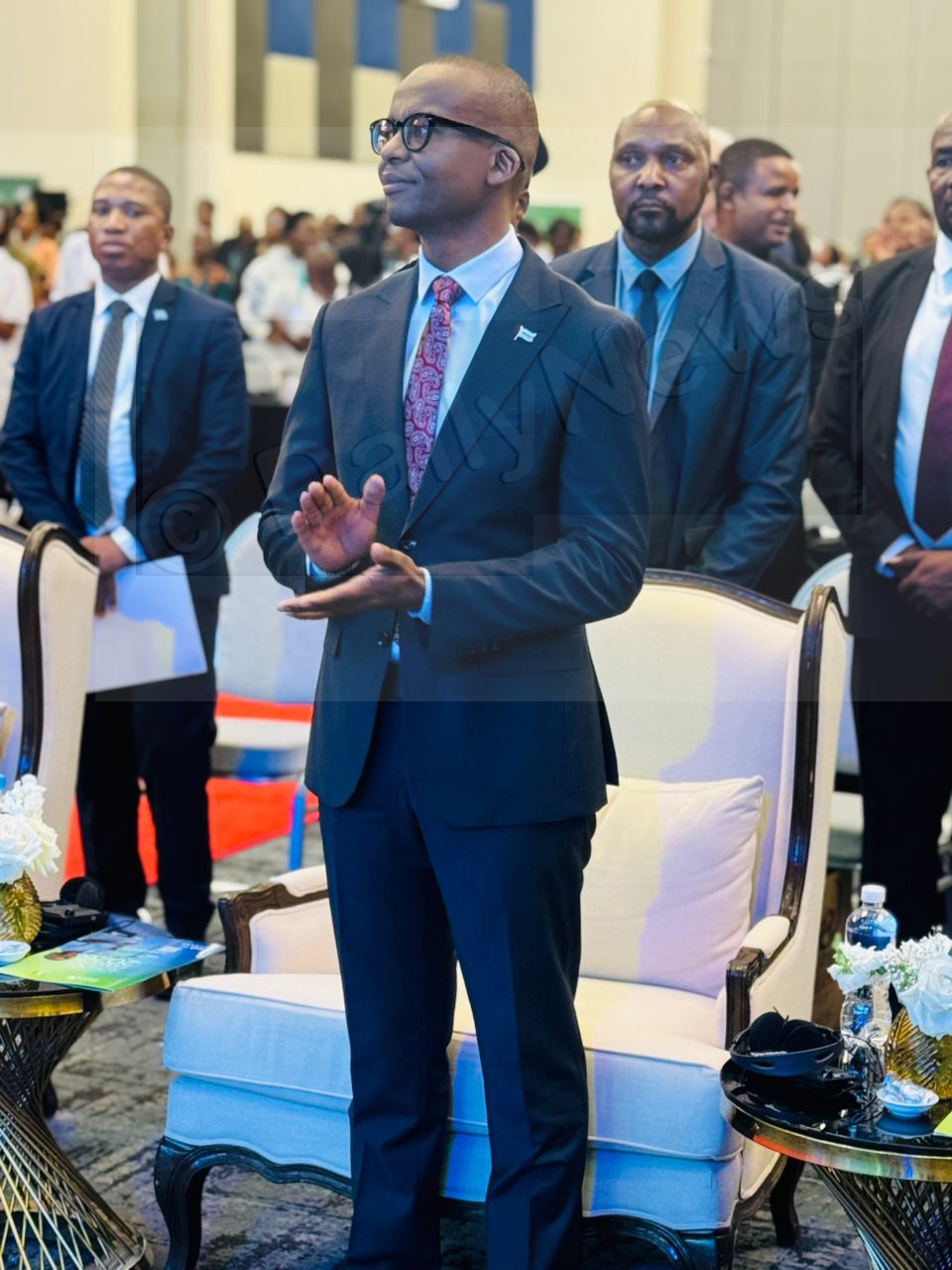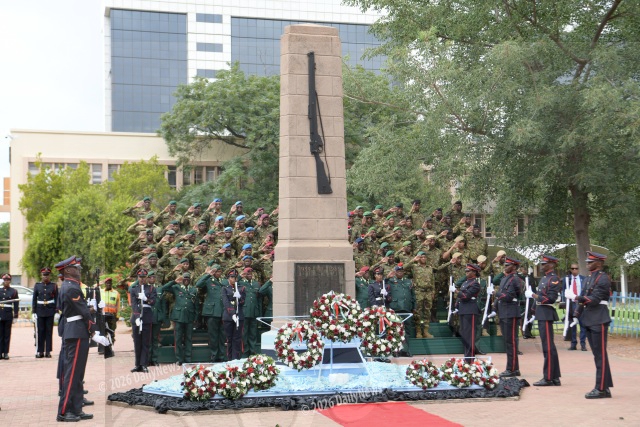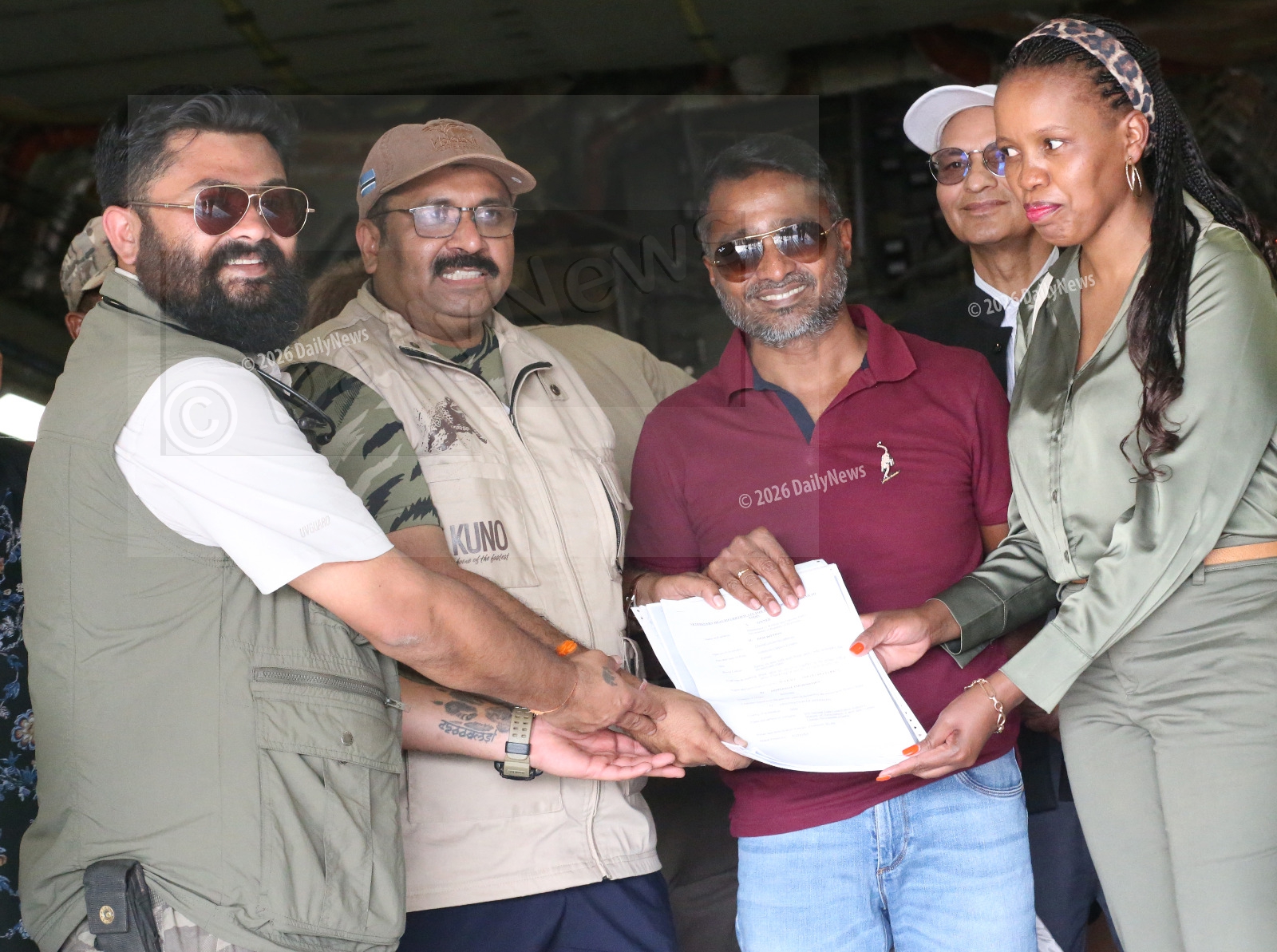Trio recommits to port project execution
16 Jul 2024
Botswana, Mozambique and Zimbabwe Presidents have signed a Tripartite Agreement for initialisation of the US$6.5 billion of the long envisaged Technobanine Deep Water Port Project that has been on cards since 2011.
The project include construction of a railway line connecting Mozambique, Zimbabwe and Botswana.
The initiative is aimed at enhancing regional integration and boosting intra-regional trade in alignment with African Union’s Agenda 2063 and African Continental Free Trade Area (AfCTA).
The three Presidents, Mr Filipe Nyusi of Mozambique, Mr Emmerson Mnangagwa of Zimbabwe and President Dr Mokgweetsi Masisi signed the agreement during the Tripartite Summit that was part of the engagements of President Masisi’s state visit to Mozambique recently.
Speaking to journalists following the signing ceremony, President Masisi said the three heads of state were fully aligned, committed and resolute to ensure execution of the projects.
He said the three nations, including SADC and the rest of African continent and the world, eagerly waited for the development of the deep water port project.
President Masisi said the significance of the three countries in the project was that each country had a role to play and that there was no room to retract.
He said the project would ensure optimisation of value addition to economies of the three nations, prosperity for every SADC country and the citizens and the whole of Africa.
He said the Techobanine Port and railway line projects were significant for rolling out the ease of interconnectedness of the region, movement of people, goods and services.
For his part, Zimbabwe President, Mr Mnangagwa expressed his country’s readiness to fulfill its obligation as an expression of their commitment to the groundbreaking of the three-lateral project.
He also said the development of the key infrastructure between the three countries was in sync with Zimbabwe’s National Development Strategy and Vision 2030 as well as regional and integration in fulfillment of the African Union’s Agenda 2063.
Mr Mnangagwa said during the Tripartite Summit, the three leaders underlined the need to further deepen economic cooperation as a way to overcome logistical bottlenecks in the transportation of goods and services between the three countries.
“It is important to highlight that the tripartite summit was preceded by high-level visits among our three countries, as well as the Zimbabwe Botswana Bi-National Commission held in February 2024, and the Zimbabwe-Mozambique Joint Permanent Commission on Cooperation, which took place in November 2021.
Meanwhile, Mozambique President, Mr Nyusi concurred that the three leaders were committed to bringing the required momentous to activate necessary steps for the preparation of the intended investments.
“For that, we count on the excellent political and diplomatic relations between the three countries that are likely to lead to a more consequential cooperation with the final aim of the completion of the undertaking,” he said.
He said he was confident that the project would increase the availability of transport infrastructure as well as the integration and interconnectivity of transport systems, which were important sectors for economic development of the three countries.
“This project under consideration presents convergence of the Cape route and the Indian Ocean route, opening the region to the international market while facilitating the logistics of the entry of necessary imports,” said President Nyusi.
The summit allowed the three heads to reflect on their commitment to the project, which initially started as a private sector-led effort.
In an interview on the sidelines of the summit, Minister of Transport and Public Works, Mr Eric Molale said intention of the summit was to resuscitate talks on the initialisation of the Techobanine Deep Water Port project that was shelved due to a plethora of constraints.
He said the project would be implemented in phases starting with feasibility study, which would guide investors on the viability of the project that would be executed through Public Private Partnerships (PPP) and concessional funding.
Mr Molale said although Botswana was initially constrained due to deflation of coal and objections of coal usage due to its effect on climate change, the project was still viable due to its economic benefits.
Currently, he said there were delays in South Africa’s major ports, which most countries relied on, which he said had direct impact on the operating costs of shipping that had negative bearing on consumers. ENDS
Source : BOPA
Author : Mmoniemang Motsamai
Location : MAPUTO
Event : Tripartite Agreement
Date : 16 Jul 2024








